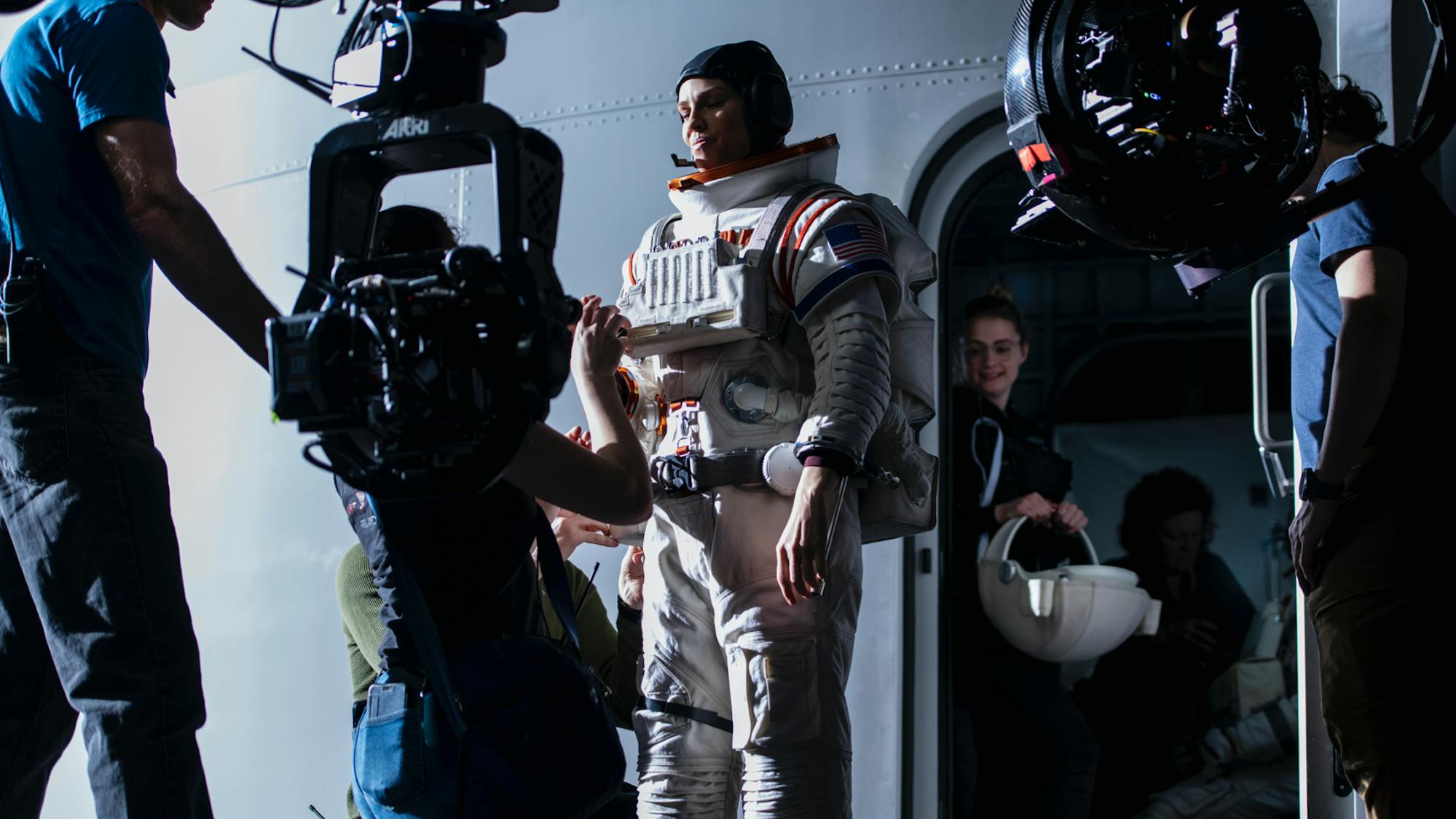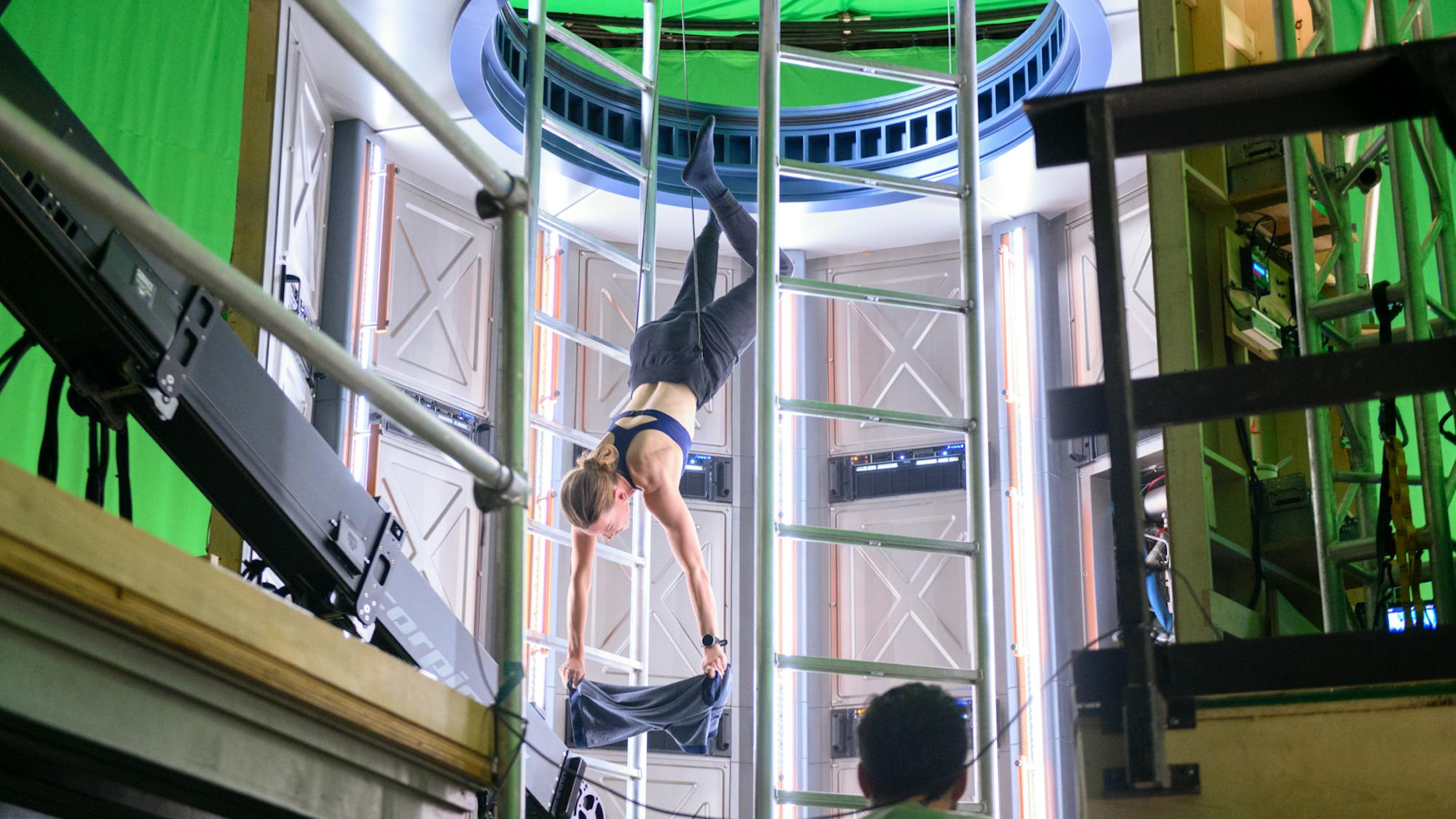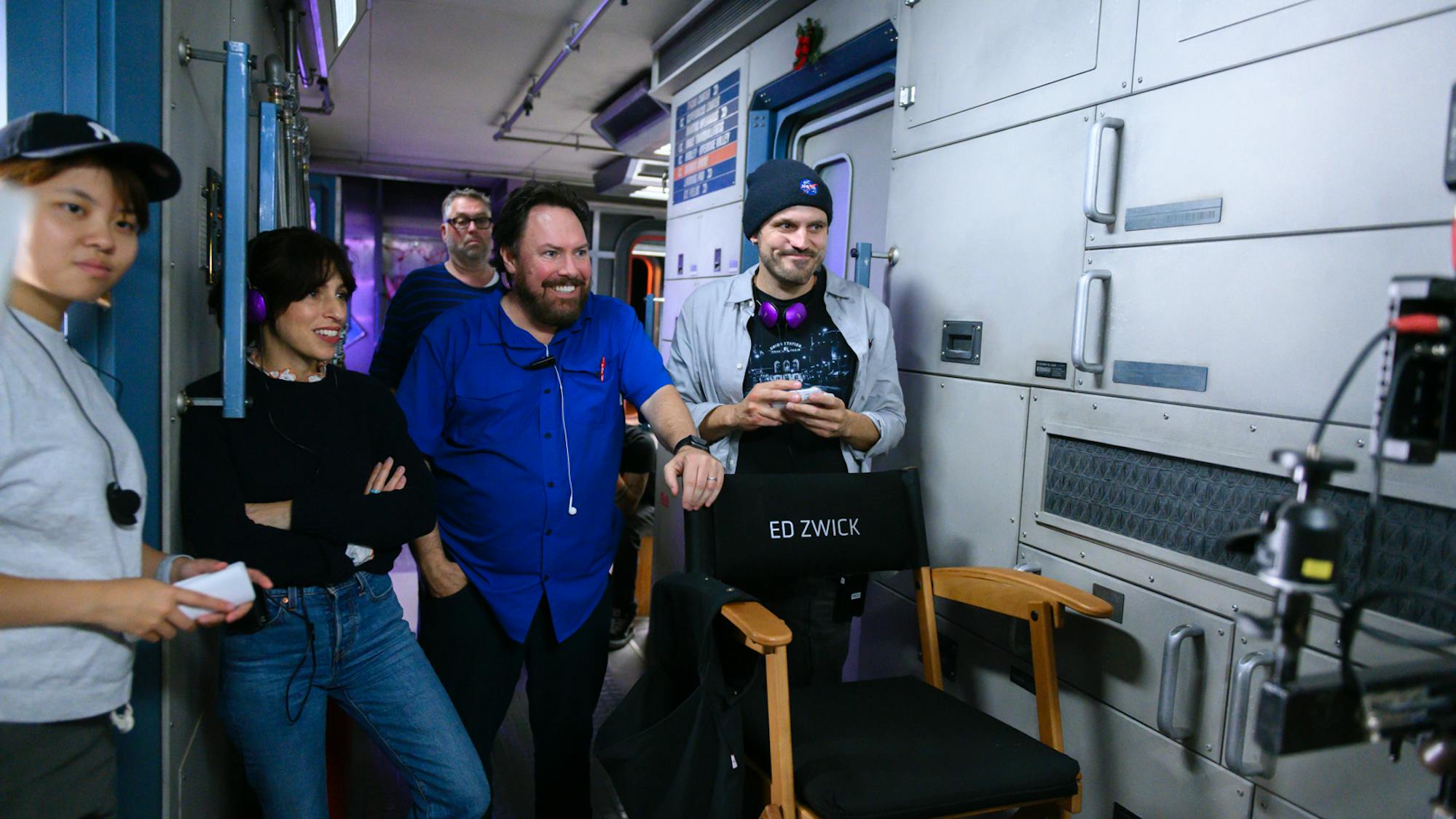Hilary Swank and showrunner Jessica Goldberg cross a new frontier in Away.
It’s funny to think about it now, but two-time Oscar winner Hilary Swank — famed for her indelible performances as transgender man Brandon Teena in Boys Don’t Cry and spirited boxer Maggie Fitzgerald in Million Dollar Baby — spent the very earliest days of her career landing the smallest of parts on the small screen.
Although the range of television roles available to an actress of her caliber evolved considerably as the decades unfolded, film remained her preferred medium — “only because with television, it used to be that you had to sign on for an unlimited amount of time,” Swank says. “There was no choice. It was, ‘If the show does well, we own you,’ and that felt claustrophobic to me.”
Working in a changed landscape, Swank executive produces and stars in Netflix’s new space drama Away, as astronaut Emma Green, the commander of the first manned mission to Mars. Created by Andrew Hinderaker, the series tracks Green and the members of her international team as they leave behind their families and risk their lives in the name of science. Green knows she might never make it back to husband Matt (Josh Charles) and daughter Alexis (Talitha Eliana Bateman), but she perseveres nonetheless. And in a refreshing twist, the show never vilifies her for that decision.
For showrunner Jessica Goldberg, the award-winning playwright who created the drama series The Path and served as a writer-producer on Parenthood, the series is a departure: “I was never interested in space, which is the crazy part,” she says. “Now, I’m obsessed with space. It’s one of the gifts of being a writer: You suddenly find yourself in a world you never thought you’d be in.”

Hilary Swank prepares for a scene in her space suit
Netflix: What was your first meeting like?
Jessica Goldberg: It was a great first meeting. Hilary was the first person we thought of who we really believed could be an astronaut, could go to space, could play the emotional complexity of having a family at home. And she had a childhood dream of being an astronaut.
Hilary, do you feel like now you’ve realized that dream?
Hilary Swank: Yes! That’s the great thing about being an actor: I get to walk in other people’s shoes, see through their eyes. Whatever field it is that I’m exploring as an actor, I get to talk to people who are the best in that field. In this case, it was a bunch of extraordinary astronauts who were so generous and giving of their time. And one of the great things about being an executive producer was that I got to be a part of the development of the character and of the other storylines, making sure that each character was fleshed out in a way that felt authentic and real.
Perseverance really resonates, particularly as a female writer.
Jessica Goldberg
Emma feels revolutionary in that her family and her career are of equal importance.
JG: That was definitely one of the things that drew me to the project. I had never seen a working mother articulated with such nuance. It felt revolutionary that her family supported her dream and was part of her dream.
She’s also a woman working in a male-dominated field.
HS: She’s this commander, she’s a leader, but she leads with empathy and vulnerability. Vulnerability isn’t seen as a weakness in the script; it’s seen as a strength. Probably just a few years ago she would have been this woman who was stony and stoic. Certainly in the last 29 years of my career, a lot of the stories we’ve seen on the screen have been written from a straight white male point of view, and that’s a very myopic way of seeing things. This story is powerful and representative of women today.

Hilary Swank defies gravity
Hilary, are there aspects of Jessica’s writing to which you very strongly respond?
HS: I’m taken by her ability to find the professionalism in Emma Green, to find the vulnerability underneath it, to have these colors and this humanness within a person who is constantly trying to figure out how to be the best parent, how to be the best wife, how to be the best commander. Jessica’s so good at writing all of that. Being a mother herself and navigating her career, it’s something that she understands in her marrow and is able to convey on the page.
Is there a throughline in terms of the kinds of women you want to bring to the screen?
HS: The characters I’m drawn to are women who persevere and never give up under any circumstance. Of course, they falter; of course, they flounder; of course, they struggle. They’re not made of steel. They’re humans who are trying to find their way. But no matter what, they don’t give up. I find that in real life, that’s what inspires me most about the human race.
JG: I’m drawn to all kinds of stories, but I agree with Hilary: Perseverance really resonates, particularly as a female writer; characters who are seeking some kind of personal truth and are trying to live their lives in an authentic way really resonate.
I just love that the series shows the humanness within us all.
Hilary Swank
Jessica, how do you think your background as a playwright has served you in television?
JG: I think you’re seeing so many playwrights writing for television now mainly because television has become the land of characters. You need to create characters for TV that people want to sit with for more than an hour and 50 minutes. And there are so many archetypal journeys that you can really tap into your playwriting life to explore.
Hilary, did you find a certain freedom in playing this character over 10 episodes?
HS: One of the greatest things about being an actor is that it blows open your own limited ways of viewing the world. When you get the ability to explore a character for 10 episodes, you can really dive into the gradations of emotion. You have the challenge of finding a new way to play a certain emotion that’s different from how you did it the last time. That’s very human: We grow. It’s so great to have a series like this, where you get to play in that playground and grow as an actor.

Jessica Goldberg with fellow crew members on set
You’ve made a show that is very much about navigating conflict and compromise, overcoming adversity, and coming together for a single purpose — in this case, completing the mission. That feels extremely relevant right now.
JG: When we started working on the show — I think I got involved maybe a year and a half ago — the world was divisive, and wow, it’s gotten so much worse. Most things in storytelling go toward dystopia; that’s just where people naturally go. We really thought, Let’s dream the opposite. Let’s dream something hopeful. Let’s dream of the world coming together.
HS: Away deals with space, and that’s a place that has no borders, where all people are working toward a common goal. I just love that the series shows the humanness within us all. We all want to give and receive love, to fulfill a purpose, and we all have the fears and the hopes and the desires that come with that. All of that is within every single person, no matter your race or gender identity.